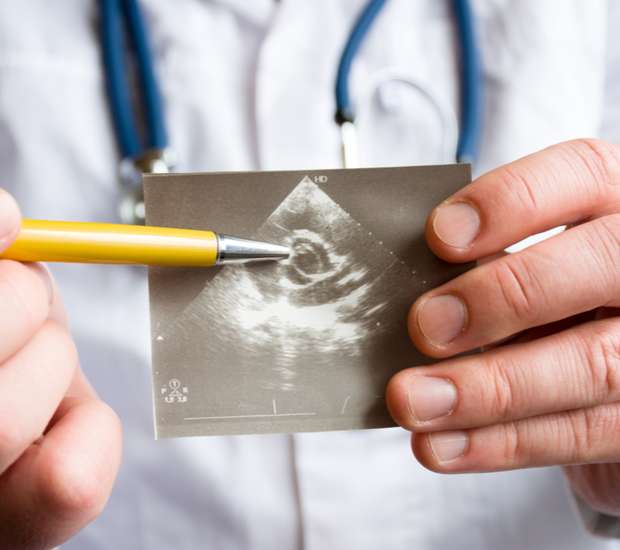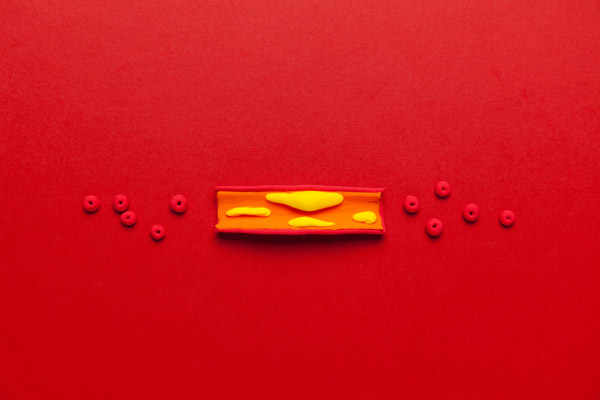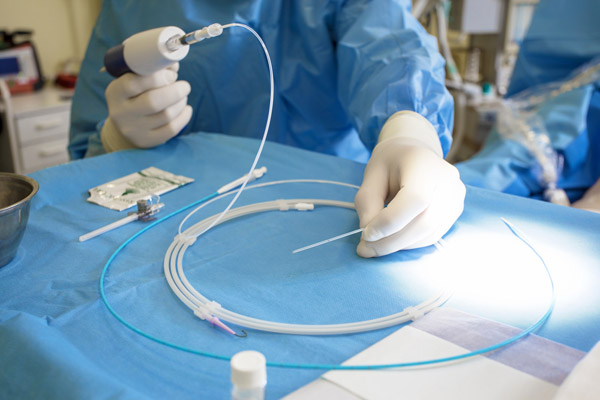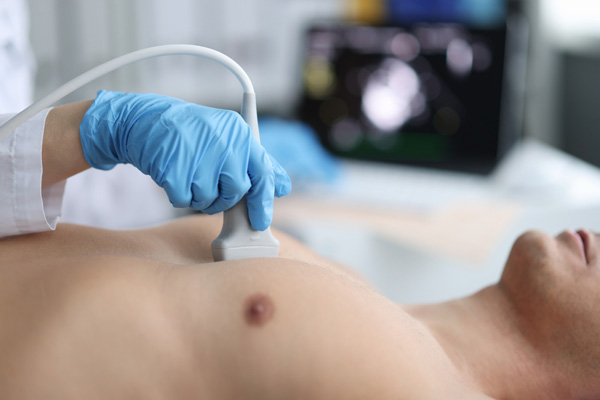Cardiac UltrasoundsDelray Beach, FL
Cardiac ultrasounds are a great way for cardiologists to gather more information on a patient's heart health and function. These tests help them confirm a diagnosis and ensure the proper treatment is administered for the patient both in the short-term and long-term.
There are different types of cardiac ultrasounds. It can be helpful to understand the purpose of each type of cardiac ultrasound.
Here at our cardiology office, we can safely and effectively administer all of the different types of cardiac ultrasounds to help you maintain and monitor your heart health. Our tests can also catch potential concerns before they cause problems.
What are Cardiac Ultrasounds?
If someone says the term cardiac ultrasound, they are most likely referring to an echocardiogram.
Medical personnel perform the ultrasound by having the patient lie down on a flat surface. Next, a technician places an ultrasound gel on the affected area. In this case, it will likely be the heart or major arteries. The technician then uses the ultrasound machinery to produce an image of the area.
A cardiac ultrasound helps professionals examine many aspects of heart health by giving a better view of the heart. Cardiologists can diagnose a variety of heart-related issues with an ultrasound, including the development of blood clots and the efficiency of blood flow throughout the body.
Different Types of Cardiac Ultrasounds
Cardiac ultrasounds are a fairly complex procedure. There are various types of cardiac ultrasounds a cardiologist may choose to utilize.
The following are five of the more common cardiac ultrasounds that we may use. Read over each type of scan to get an idea of the exams our cardiologist may recommend.
Vascular Ultrasounds
A vascular ultrasound is one of the best ways to evaluate the blood flow inside the arteries and veins. Rather than only evaluating the heart during a cardiac ultrasound, vascular ultrasounds allow cardiologists to examine the blood flow in almost any artery or vein in the human body.
Vascular ultrasounds are non-invasive, and the entire procedure typically lasts no longer than 10 minutes. Vascular ultrasounds can help detect and determine the severity of heart disease. It can also be used to detect the existence of deep vein thrombosis, which is a blood clot in the veins of the arms or legs.
Carotid Ultrasounds
Carotid ultrasounds examine the blood flow in the carotid arteries in the neck. These are responsible for transmitting blood from the heart to the brain. Carotid ultrasounds can detect the existence of a blockage inside of the carotid arteries, also called stenosis. This blockage can increase the risk of a stroke, so early intervention can be life-saving.
While an ultrasound of the neck may seem more invasive than most cardiac ultrasounds, it is still a very non-invasive procedure that does not take long to perform.
Arterial Ultrasounds
The main purpose of an arterial ultrasound is to examine the blood flow of the arteries inside of the arms and legs. An arterial ultrasound is more concerned with examining the arteries than the veins. However, our doctor may evaluate blood flow in the veins at the same time.
Arterial ultrasounds can detect many heart complications, including narrowing of your blood vessels and other signs of heart disease.
It is performed much in the same way as an echocardiogram, utilizing ultrasound gel and a transducer to produce a visual image of the activity inside of the arteries.
Abdominal Ultrasounds
Abdominal ultrasounds may be ordered for different reasons. While abdominal ultrasounds are often ordered for non-cardiac concerns, they may also be utilized to help determine the function and status of blood vessels within the abdomen region.
Abdominal ultrasounds are incredibly useful at detecting whether you are at risk of an abdominal aortic aneurysm, which can be life-threatening if it bursts. Doctors suggest that men between the ages of 60-75 consider an abdominal ultrasound. Abdominal ultrasounds are completely safe, pain-free, and can be completed in as little as ten minutes.
Venous Reflux Ultrasounds
Venous reflux ultrasounds help cardiologists evaluate the health and function of the veins inside of the body. In particular, venous reflux ultrasounds are designed to reveal whether or not reflux is taking place inside the veins, which refers to a restriction of the blood to flow freely through the veins. Venous reflux ultrasounds also reveal whether varicose veins exist within the patient.
Venous reflux ultrasounds involve placing an ultrasound gel on the arms and legs. Venous reflux ultrasounds also usually take no longer than 10 minutes to complete.
Echocardiogram and EKG
An echocardiogram is the main type of cardiac ultrasound that doctors use to produce images of the heart. It can determine the size, shape, and thickness of your heart. We may order an echocardiogram to detect heart disease, heart failure, pericarditis, and other conditions. Also, an echocardiogram can see how strong your heart is pumping and identify any abnormal functions such as leaks or clots.
You may have heard of an electrocardiogram, also called an EKG. It is common for a doctor to use an EKG in conjunction with an echocardiogram. An EKG involves placing electrodes over the heart and body that provide information on the electrical activity of the patient's heart.
When used together, an echocardiogram and EKG can give doctors a full understanding of the patient's heart.
Schedule an Appointment With Us
Maintaining a healthy heart is extremely vital to ensure long-term health. Cardiac ultrasounds are not simply for those who are at risk or have a history of heart conditions. Rather, cardiac ultrasounds are best for anyone with an interest in the long-term health of their circulatory system.
If you or a loved one are experiencing any heart-related issues or any symptoms of heart disease, then call our cardiology office to schedule an appointment. Even if you simply want to learn more about cardiac ultrasounds and see why they are important, then call with us and find out how we can help.
Request an appointment here or call Florida Premier Cardiology at (561) 325-6495 for an appointment in our Delray Beach office.
Contact Us
Florida Premier Cardiology is located at
5210 Linton Blvd Suite 301
Delray Beach, FL
33484





